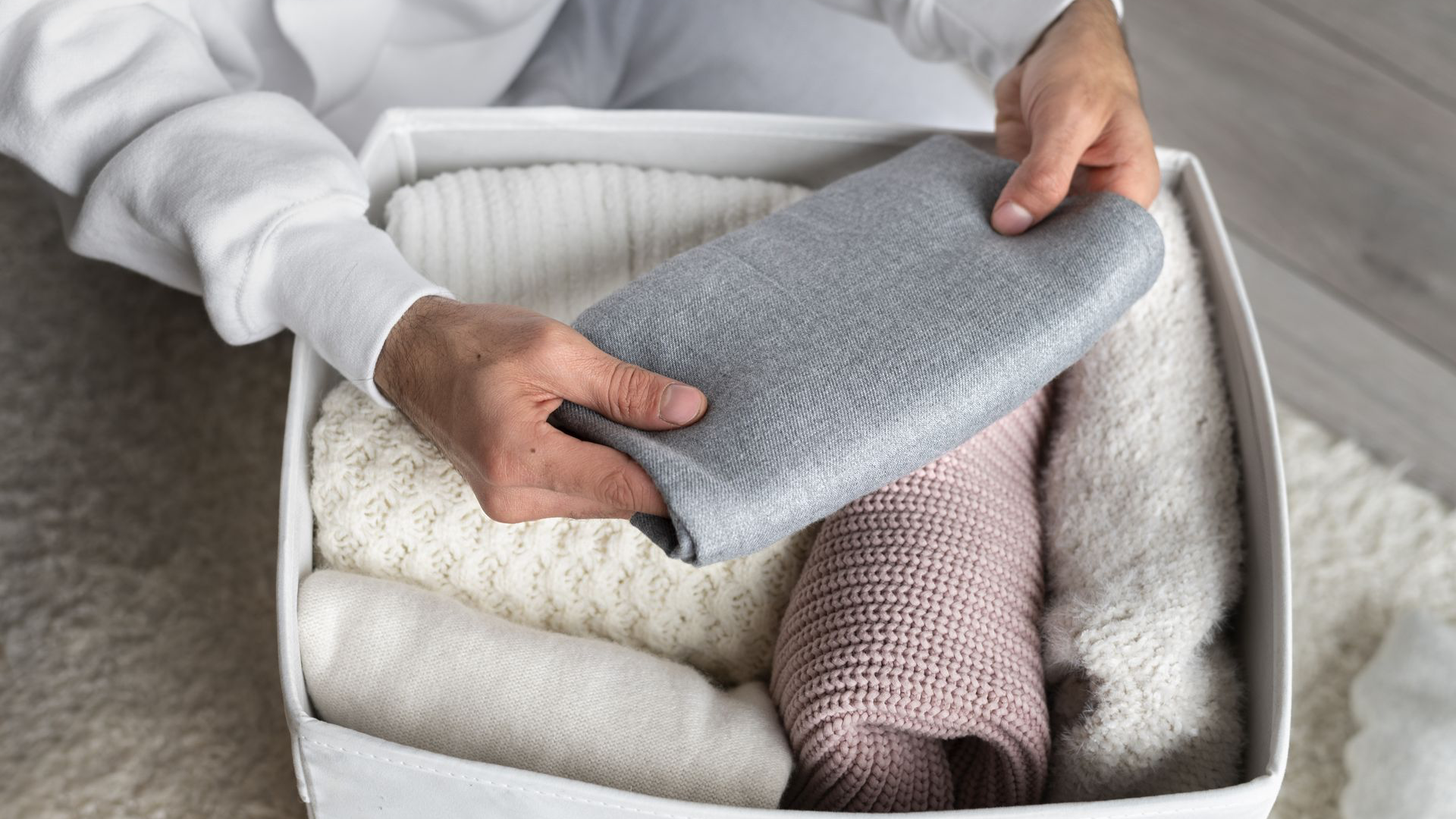How runway choices ripple into fabric demand
Runway fabric decisions at Paris/Milan—and couture statements in Delhi—set the raw-material brief for the next 6–12 months. Editors frame the story, buyers place orders, mills spin up look-alike bases, and social algorithms push the textures (liquid shine, crisp sheers, plush piles) that consumers start searching for. In 2025, three material stories stand out: liquid metallics, technical laminations, and regal Indian couture textiles (silk, velvet, brocade, organza).
Paris Fashion Week 2025: “Liquid metal” & armor shine
Fall/Winter 2025 Paris coverage repeatedly flagged metal-looking surfaces—from tinsel-like silver sets at Lacoste to tech-forward metallic gowns—codifying the season’s armor-glam mood. This wasn’t just “silver is back”; it was fabric-led: laminates, lurex-knit effects, metallic foils, and coated jerseys that photograph like steel.
Vogue’s broader FW25 lens also showed the shine spectrum—satin, sequins, disco gloss—underscoring that reflectivityis the texture uniting many houses this year. In editorials and trend recaps, you’ll see satin sheens and high-lustre surfaces positioned as key styling anchors for fall.
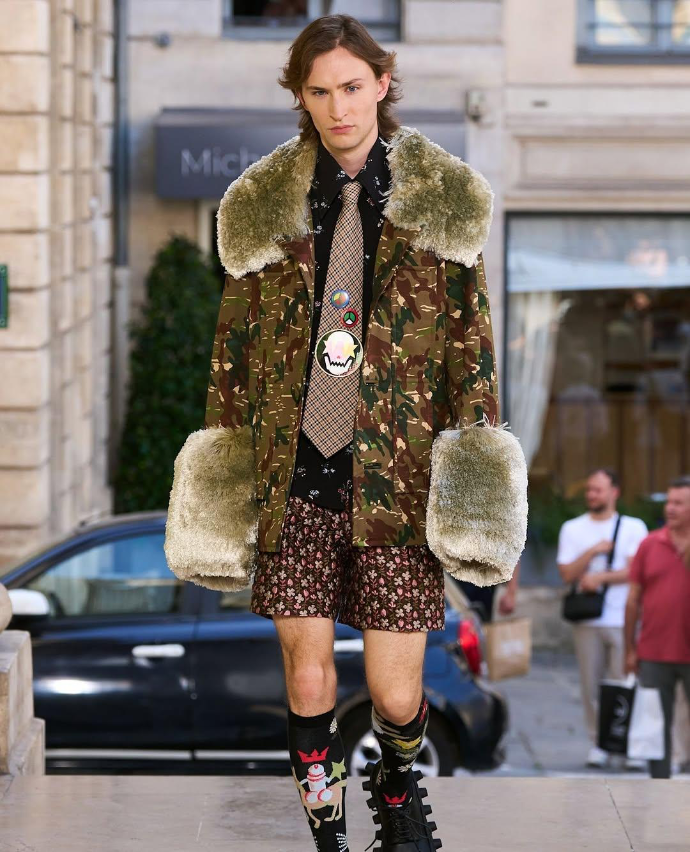
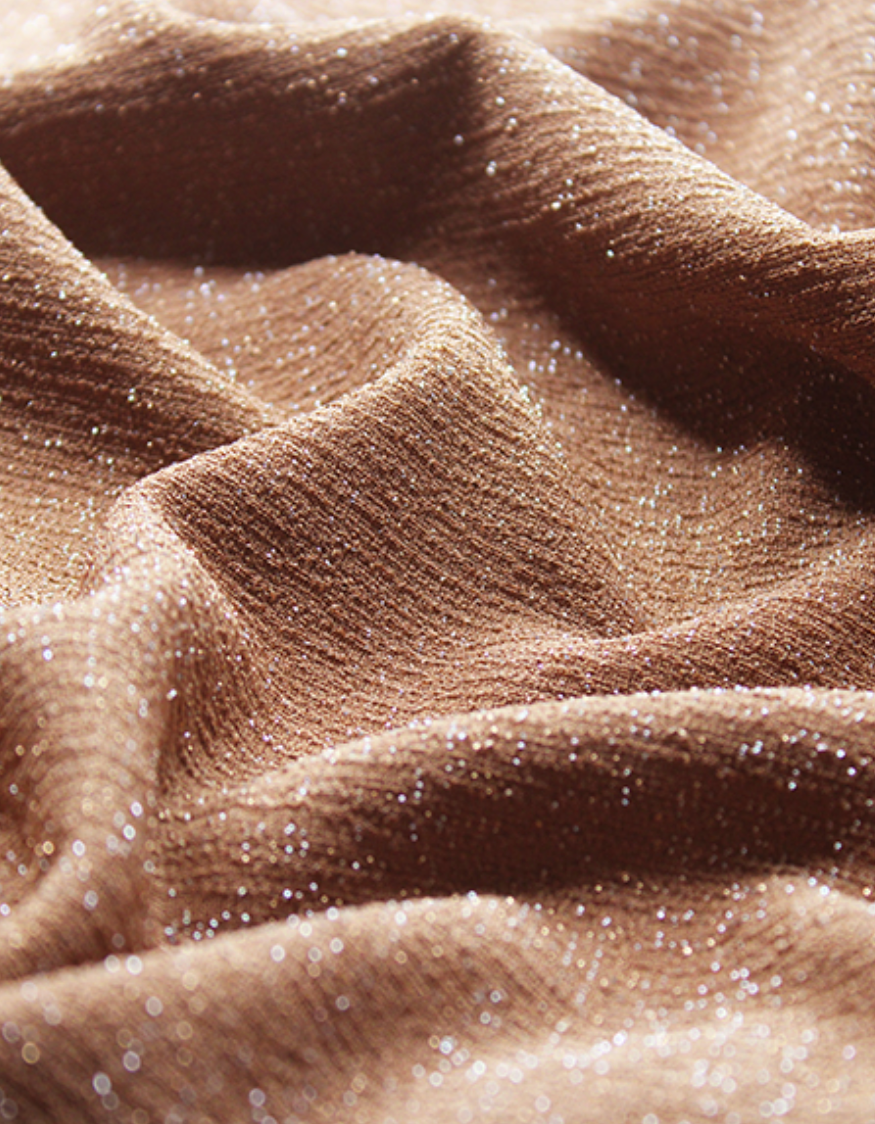
Milan’s material engine: laminations, lurex crepes & metallic velvets
Italy’s textile fair circuit (e.g., Milano Unica) is where many runway fabric directions turn into purchasable qualities. For FW25–26, the materials board read like a metallic playbook: iridescent viscose-blend velvets with a metallic look, crêpe coupled with lurex yarns, laminated jerseys, natté with metallic coatings, plus 3D taffeta and reinforced laminated bases. That’s the supply-side confirmation that shine and structure are real bets—not just catwalk theatrics.
What this means for product teams: ask mills for handfeel variants (soft vs armor), specify stretch recovery on laminated jerseys, and run needle-heating tests on laminated/coated goods to avoid stitch melt.
India Couture Week 2025: silk, velvet, brocade & organza dominate
On Delhi’s couture runways this August, designers doubled down on regal tactility—silks, velvets, brocades, sheer organza—with showpieces and celebrity looks (e.g., Banarasi tissue brocade lehengas) becoming instant visual cues for bridal/festive buyers. Editorial wrap-ups repeatedly name these four fabrics as the week’s texture story, with finales (JJ Valaya, among others) amplifying the mix.
Why this matters for Indian retail: these textiles translate cleanly into weddings/festivals. Expect organza dupattas, velvet lehengas, and brocade sets to filter quickly into prêt and occasionwear capsules through the festive season.
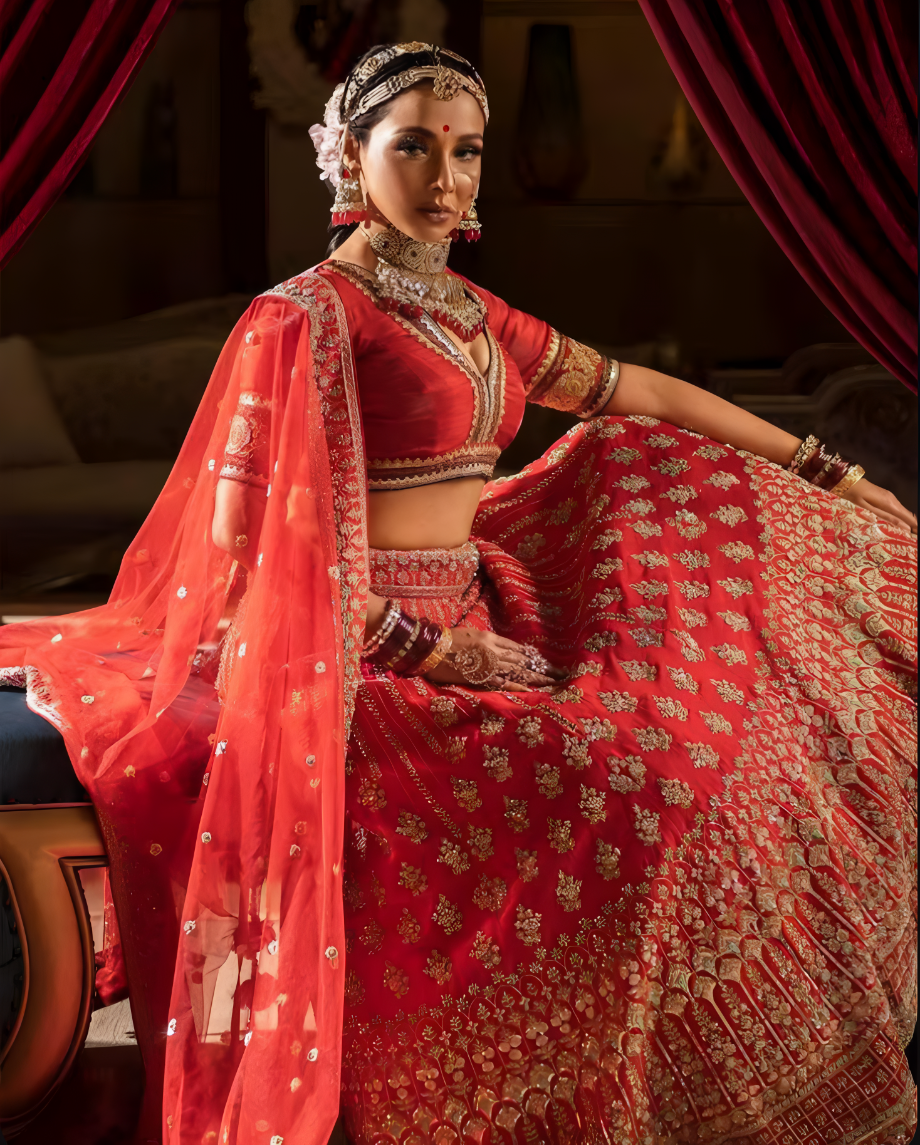
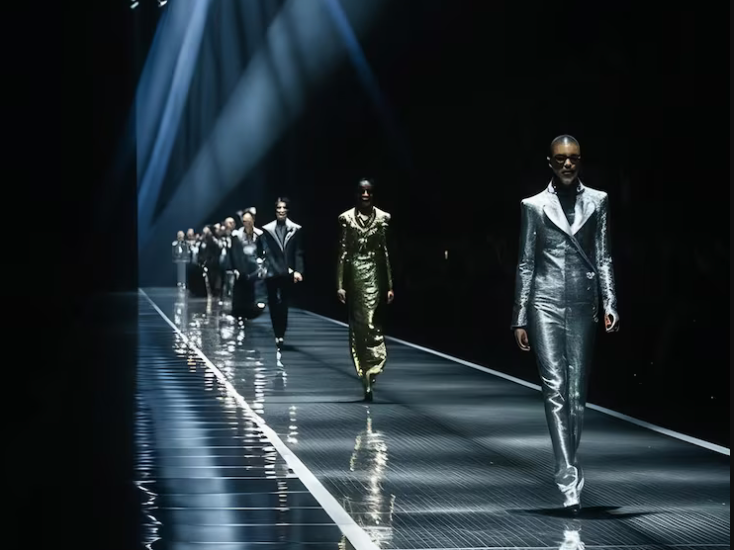
Runway signal → Editors label the season’s feel (e.g., “Metal Material”).
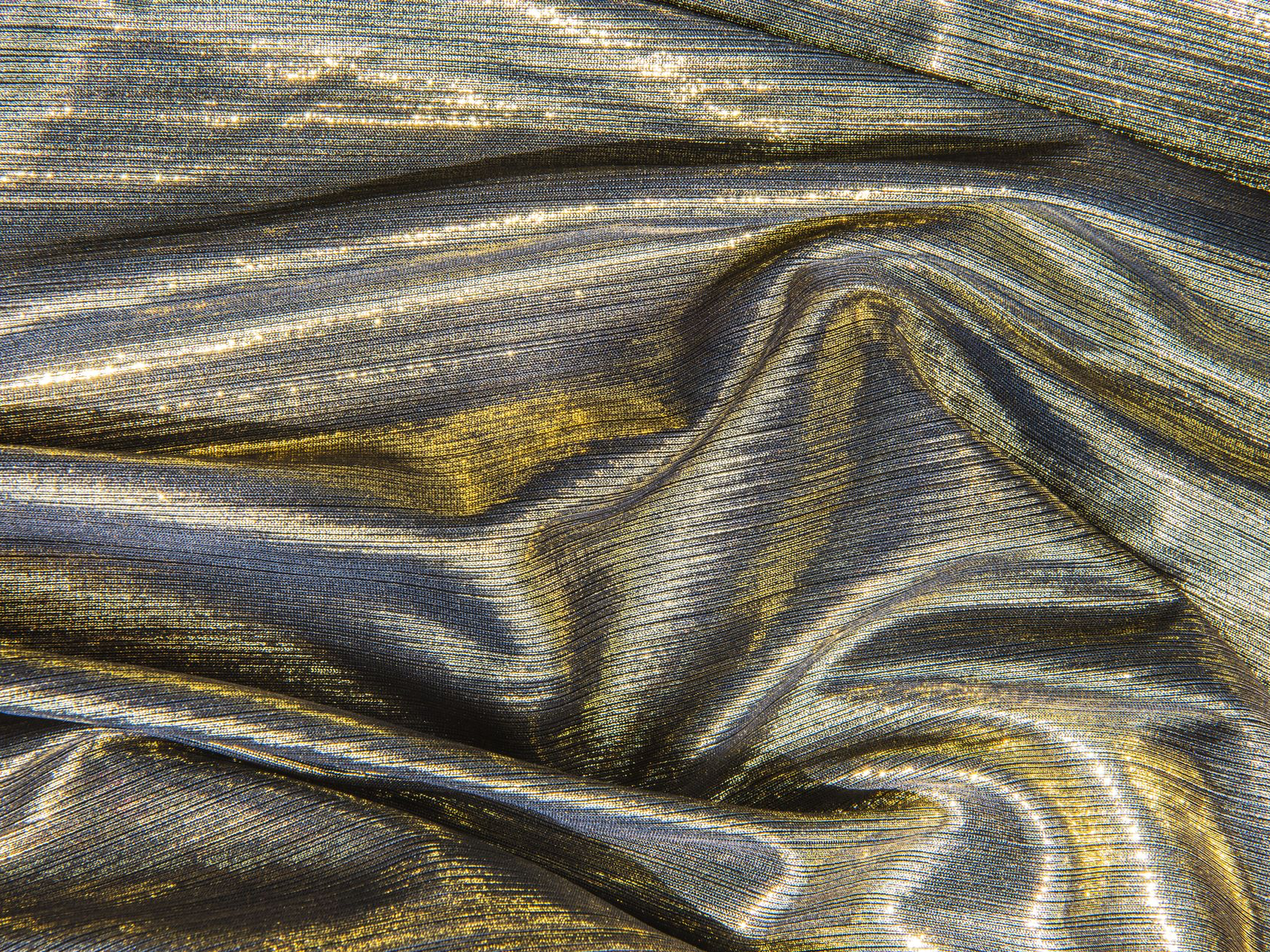
Material confirmation → Fabric fairs and mill lookbooks echo the surfaces (lamé, coatings, lurex).
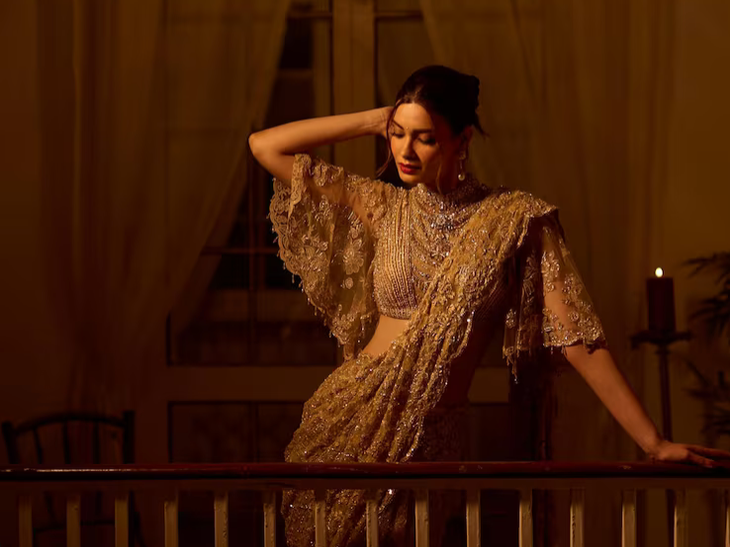
Couture localization → Indian couture translates shine into wedding-friendly textiles (silk, brocade, velvet, organza).
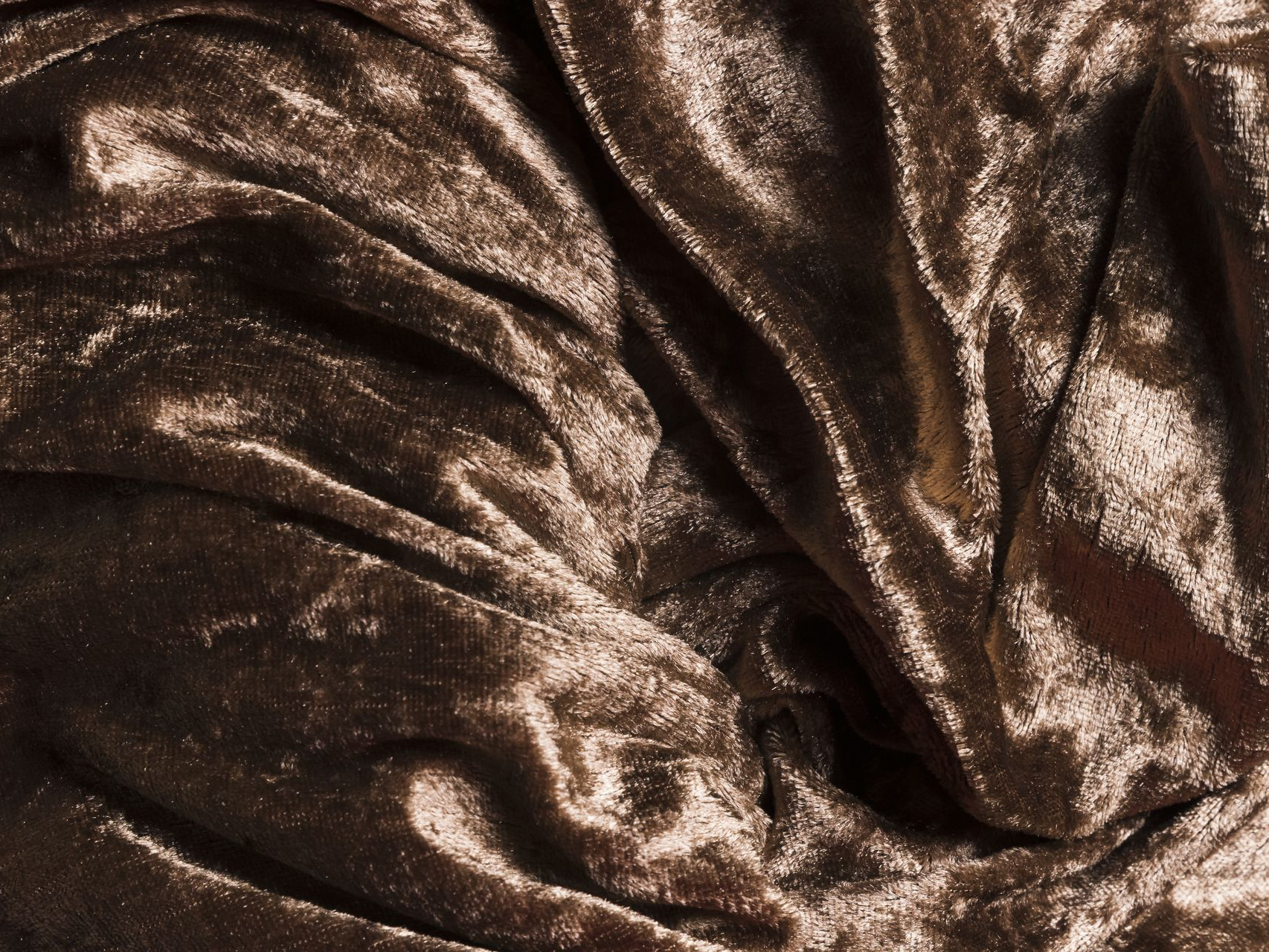
Retail rollout → High street adopts cheaper bases (foil-print knits, metallic-coated poplins), while premium lines buy true lamés and metallic velvets.
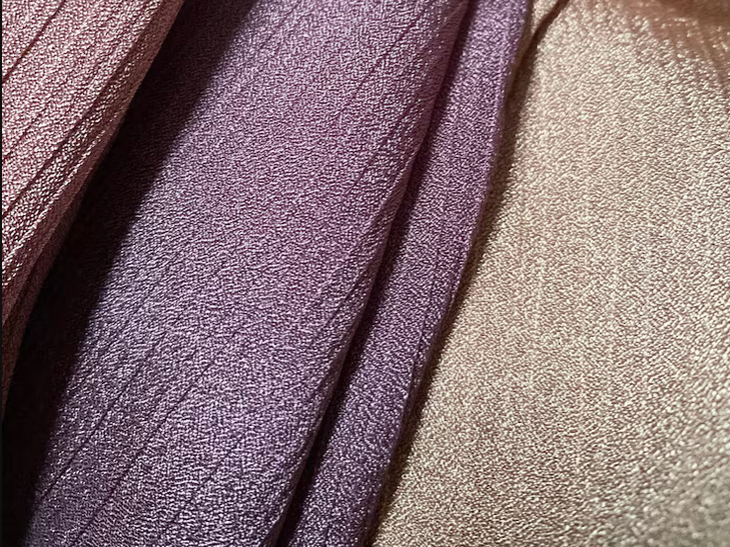
For “liquid metal” looks:
- Shortlist lamé (nylon/poly + metallic yarn), lurex crepes, foil-coated jerseys.
- Test: stretch & recovery, rub fastness (dry/wet), seam slippage, crack after 5 washes.
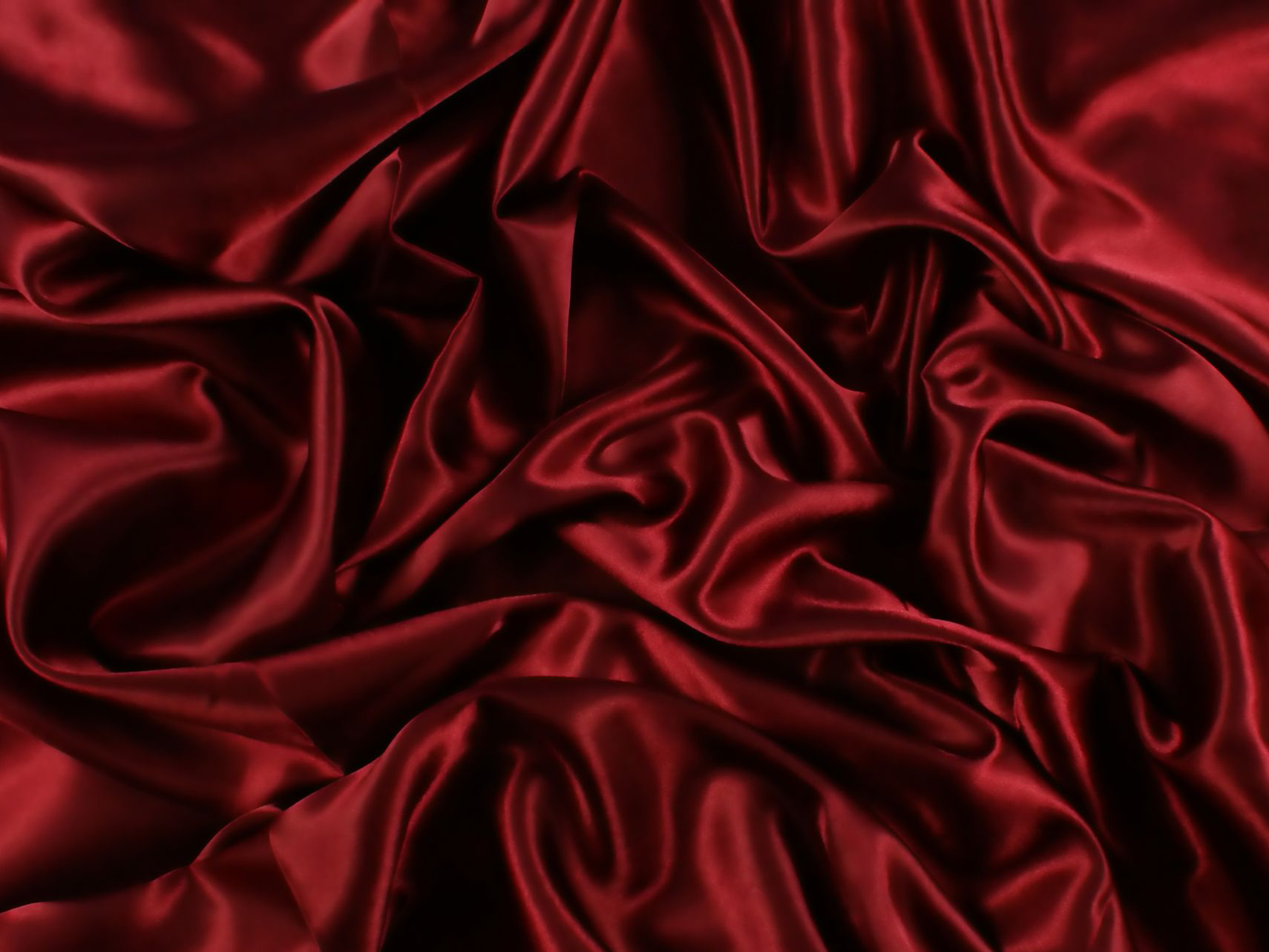
For “soft shine” (Paris gloss without armor):
- Use silk/poly satins; specify Schreiner calendaring level from the mill; confirm pilling and snag resistance.
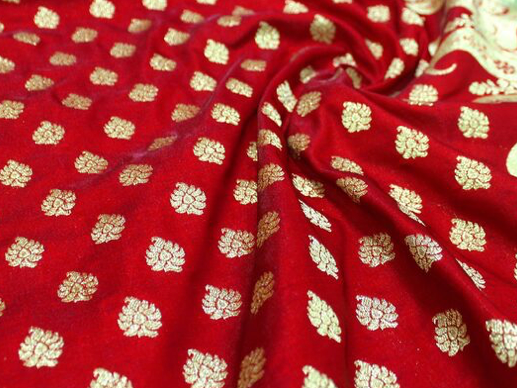
For Indian festive capsules:
- Brocade/tissue Banarasi for statement sets; organza for capes and dupattas; velvet for winter drops. Ensure zari care notes and lining choices by climate.
Care & content
- Foil/laminate garments: spot-clean where possible; low-heat press from reverse with protective cloth; avoid abrasion.
- Lurex-mix knits: wash in bags; press lightly; check itch factor at neck/armholes.
- Brocade/velvet: professional cleaning; store flat/padded; protect zari from humidity.
